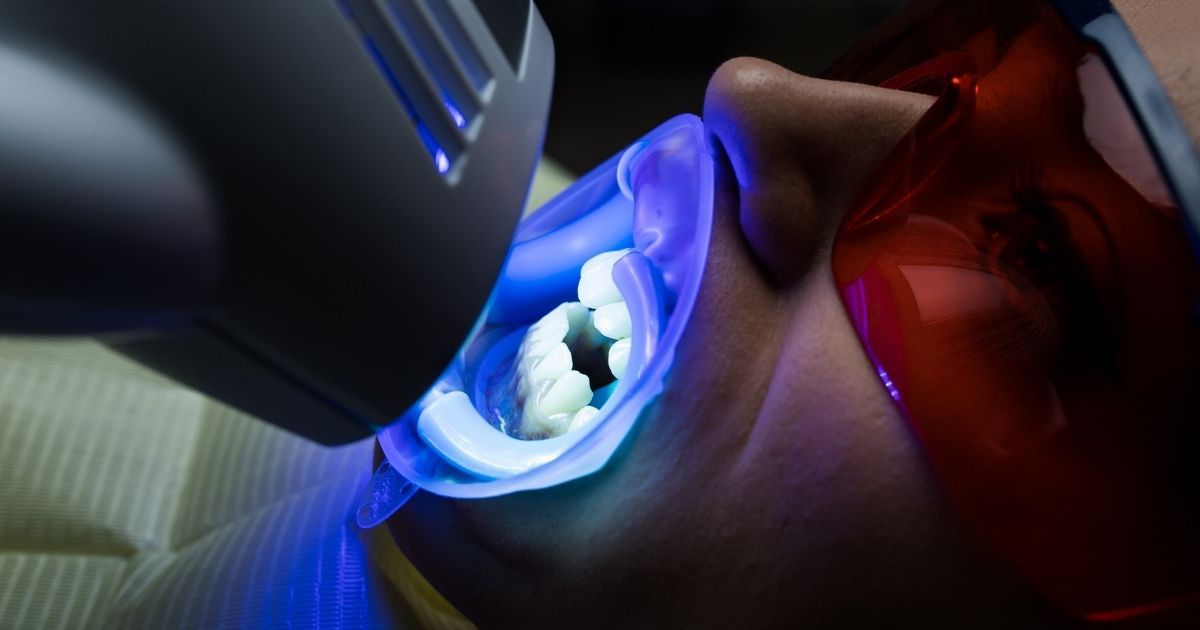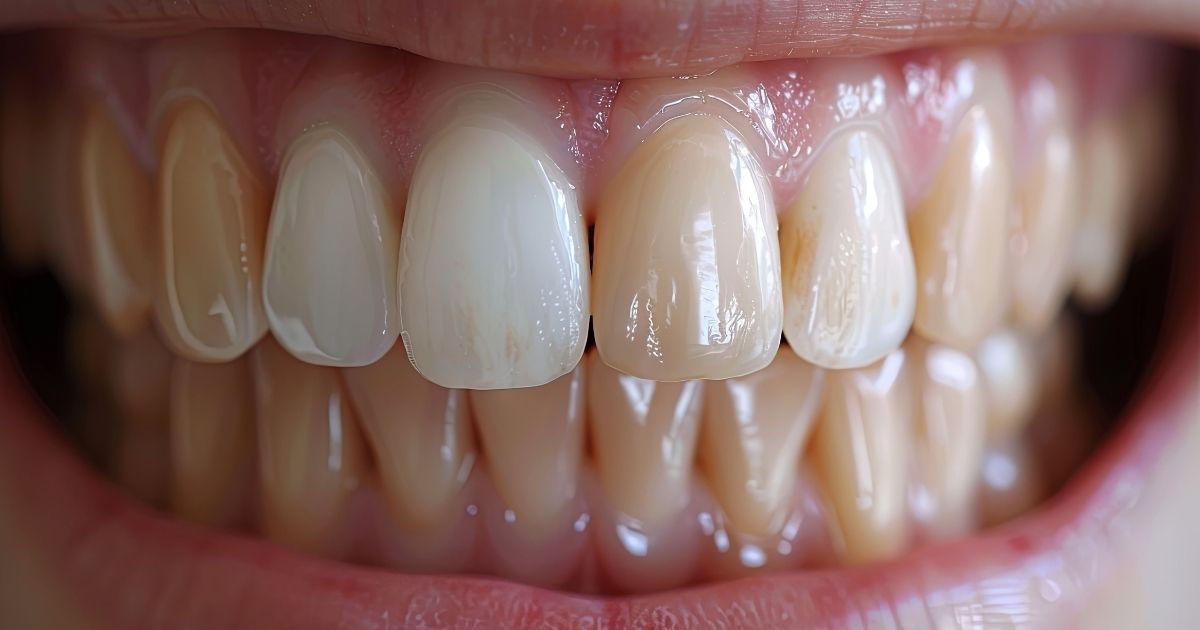Cleaning and whitening dental implants
Having gone through with dental implant procedure, you probably want to keep dental implants looking as new possible. Find top tips how to do that here!
If you’re wondering how to clean dental implants, you should treat them how you would your natural teeth – with regular brushing, flossing and antibacterial mouthwash.
Not only will this maintain a white smile; but it can also help to prevent infections such as peri-implantitis. The key difference with implant crowns is that cosmetic industry practices don’t always apply.
Reading time: 4 minutes

Can you whiten dental implants?
Strictly speaking, teeth whitening treatment doesn’t work on dental crowns or veneers. With implants, the crown is attached to the screw mechanism within the tooth. These crowns are made of high-quality, durable materials such as porcelain.
Unlike your natural set, an artificial tooth is not as susceptible to discolouration. This makes them naturally stain-resistant. However, there are exceptions to this. For example, if you get dental work that involves acid fluoride treatment or abrasive materials, this could affect the glaze on the surface. Porcelain veneers or crowns could consequently become discoloured.
Options for removing stains from dental implants
While dental implants don’t stain, they can become discoloured if treated with harsh chemicals. In this case, the best option is to replace restorations with new dental crowns or veneers. This isn’t a whole new implant procedure – the internal mechanism can stay intact, while the exterior crown can be replaced.
Option 1: Replacing the dental crown or using porcelain veneers
Replacing the crown is ideal for cosmetic dentistry, particularly if you have some natural teeth left. It may be that you’ve chosen to bleach with hydrogen peroxide for your real teeth. If one of your implants is visible, such as a front tooth, then you’ll want it to match the colour of your natural teeth.
Our trained consultants can help you choose a specialist, who’ll assist you not only in getting dental implants by replacing the crown if you want to go whiter. This is a cost-effective, less invasive option that complements the whitening procedure.
Option 2: Professional teeth cleaning for hygiene
While whiter teeth might be a good outcome of good oral hygiene, they’re not the only factor. Cleaning dental implants is also essential for treating or preventing infections. Just like real teeth, implants can gather plaque, which could lead to inflammation if not treated. This inflammation comes in two forms:
- Mucositis: An inflammatory lesion in the mucosa with no bone loss.
- Peri-implantitis: An inflammatory lesion in the mucosa with bone loss.
Do dental implants stain?
Dental implants are not like natural teeth. Professional whitening works on real teeth because stains can build up over time on the enamel. This may be down to tooth decay, trauma or foods that tend to stain like coffee and red wine.
Secondly, natural teeth have a layer of dentin. When enamel breaks down, this can cause the dentin to turn yellow. A whitening solution breaks down stains on natural teeth, whereas porcelain crowns or veneers are resistant.
Although dental implants cannot stain, they can become discoloured. This is why it’s important to stop smoking, avoid scratches and damage, and practise good dental hygiene. In tandem, this will stop layers of ‘biofilm’ from forming. These layers cause bacteria to reproduce, which may lead to infections if untreated.
Do dental implants need to be removed for cleaning?
There is no need to remove dental implants for cleaning. Instead, a cosmetic dentist might offer you a crown replacement to match the colour of your natural teeth.
If you’re a new patient who’s just tried whitening agents on your natural teeth, you may notice a difference between those and your implants. This is why it’s best to have a non-invasive replacement procedure, which doesn’t affect the jawbone.

How to remove stains from dental implants
You won’t need to remove stains from your implants as they are made from non-organic materials. Likewise, if they’re placed in the back of the mouth, they may not be visible when you smile. If this is the case, it’s best to leave them. They will not be affected by whitening treatments.
The best thing to do is prevent discolouration with good dental practices.
How to prevent stains and discolouration
To take care of both your implants and natural teeth, remember to:
- Have regular check-ups with your dentist
- Stop or cut down significantly on smoking
- Avoid foods that stain such as red wine, tea and coffee
- Brush regularly with whitening toothpaste
- Floss at least once daily and use antibacterial mouthwash.
These good practices will also stop infections, which could lead to costly implant replacements. Remember, prevention is better than cure, and there’s no replacement for good oral hygiene.